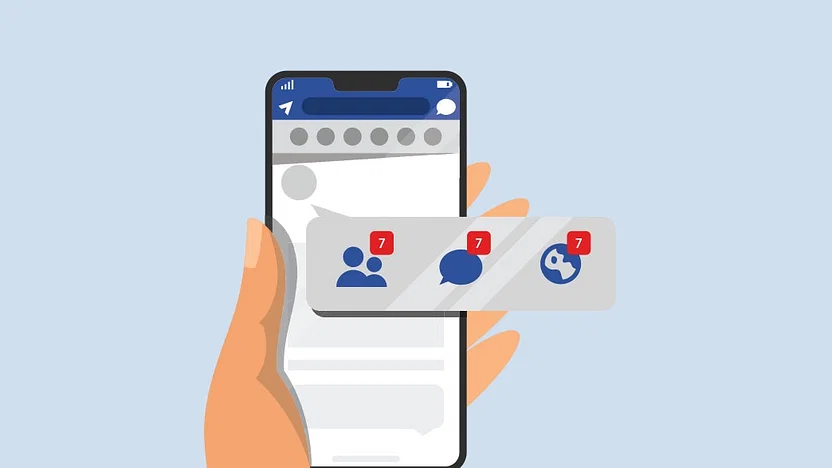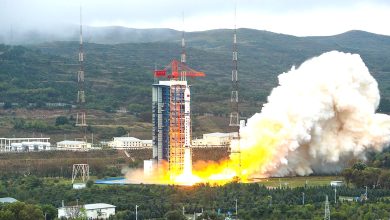How much parties spend on political advertising: DRL study

Political parties, organisations and public representatives in Bangladesh have spent around Tk 40 million on political advertisements on Facebook, according to a study of Digitally Right Limited (DRL).
Digitally Right conducts research over the impact of technology on information management. Their study on the review of the implementation of political advertisement policy in Facebook in Bangladesh will be released today, Monday.
Political parties like Awami League and BNP and their leaders are launching campaigns through advertisements, the study says adding political campaigns are being launched through various lesser known pages.
In the study, it has also been analysed as to who spends how much on political advertisements on Facebook in Bangladesh, and how far the Facebook owner Meta is effective in identifying political advertisements.
In many cases, it is seen as per the Facebook policy, the advertisers are not providing necessary information for transparency. As a result, necessary information including who is advertising and their addresses could not be known. This is increasing the risk of propaganda and false information. People may be confused due to organised propaganda.
Analysing 314 disclaimers of advertisement the study says in the case of 80 per cent, there is no adequate information regarding advertisers or addresses of the organisations. Of this, in case of advertisements, 47 per cent has only mentioned district as address, there is no specific address.
In the study, it has also been analysed as to who spends how much on political advertisements in Facebook in Bangladesh, and the Facebook owner Meta is how much effective in identifying political advertisements.
Speaking Digitally Right founder and researcher Miraj Ahmed Chowdhury said the election campaign is going on in Bangladesh. Political parties’ leaders and activists are going door to door and talking to voters. Posters are being hung up.
In the virtual world, people cannot learn who is giving which advertisement if there is no genuine information about the advertisers.
In social media, the most controversial incident about the political advertisement took place during the US election in 2016. In that year, information collected from 87 million Facebook users was used in the election campaign of Donald Trump.
Digitally Right’s study looked at 355 Facebook pages that spent more than USD 100 a year on political ads. Out of them, 72 pages put themselves in the political category on their own.
In the campaign, there was a strategy that liberal sides of Trump were presented to the liberal voters in the advertisement. Tough mindsets of Trump were presented to the hardliners.
After Trump was elected, the incident was published in the media. At the time, Facebook had to face accountability and fines in the US Congress. Information collecting organisation Cambridge Analytica was also not spared. Later, the organisation declared itself bankcrupt.
On 24 May 2018, Meta started application of political advertisement policy, the advertisers were asked to compulsorily give disclaimer for transparency. In the disclaimer, who is funding for advertisements, his name and addresses, website addresses and phone numbers must be included.
The government has a control over the media in Bangladesh. They cannot relay all of or the whole of BNP’s statements. That’s why BNP uses other social media including these two Facebook pages to spread their messages among the public.
Ruhul Kabir Rizvi, BNP senior joint general secretary
Who spent how much
Meta Add Library stores information about Facebook advertisements. Since 7 September of last year, Meta started providing information of income from political advertisements in Bangladesh.
Targeting Bangladeshi users, about 370,000 dollars, which is slightly higher than Tk 40 million (4 crore), have been spent in a year till 7 September this year.
Digitally Right’s study looked at 355 Facebook pages that spent more than USD 100 a year on political ads. Out of them, 72 pages put themselves in the political category on their own. The remaining 283 pages published 43,630 ads, of which 1,420 were sampled by the researchers.
Digitally Right also stated that they have analysed 683 political ads additionally that have been blocked from circulation for the lack of transparency. Fifty more ads that are being reviewed by Meta for circulation ban also came up in Digitally Right’s analysis.
The time has changed now. New scopes for campaigning have been created and Awami League has been using that. Just like in regular campaigning it costs money to rent a mic, it costs some money to spread the message among more people on Facebook. It’s a normal practice.
Sayem Khan, Awami League’s deputy office secretary
Meta’s information mentioned in Digitally Right’s study shows that ‘BNP Media Cell’ and ‘Bangladesh Nationalist Party (BNP)’, these two pages are there among the top 10 pages that had given ads putting themselves directly in the political category.
These two pages have spent about USD 16,000 on ads which equals to around Tk 1.8 million.
BNP senior joint general secretary Ruhul Kabir Rizvi told Prothom Alo over the phone on Sunday night that the government has control over the media in Bangladesh.
They cannot relay all of or the whole of BNP’s statements. That’s why BNP uses other social media including these two Facebook pages to spread their messages among the public, he added.
Meanwhile, Bangladesh Awami League’s page has spent USD 2,856 (Tk 319,000) on ads. Awami League’s deputy office secretary Sayem Khan told Prothom Alo, the time has changed now. New scopes for campaigning have been created and Awami League has been using that.
He said that just like in regular campaigning it costs money to rent a mic, it costs some money to spread the message among more people on Facebook. It’s a normal practice.
The list of pages that spends more on political advertisements also includes Press Express, BD People’s Voice, Jodi Kintu Tobuo, Bhalor Pothe, Amar Netri Amar Ohongkar, a2i, Banglar Shomachar, People’s Voice, Positive Bangladesh and others.
State minister for information and communication technology Zunaid Ahmed Palak is there on the list of top political advertisers. He has spent USD 7,544 (about Tk 850,000).
Zunaid Ahmed told Prorthom Alo that the young generation is indeed more active on social media. Therefore, messages on social media are being emphasised on to reach them.
The list of pages that spends more on political advertisements also includes Press Express, BD People’s Voice, Jodi Kintu Tobuo, Bhalor Pothe, Amar Netri Amar Ohongkar, a2i, Banglar Shomachar, People’s Voice, Positive Bangladesh and others.
The analysis shows that while the two pages of BNP are ahead in terms of expenditure on political ad, collectively there are more campaign on behalf of the government and Awami League. Political campaigning is carried out from different pages which go in favour of the government and Awami League.
Researcher Miraj Ahmed Chowdhury said that circulating political ad is a normal issue. The problem arises when there’s an obscurity in the announcement about the name of the person paying for the campaign. And it is the responsibility of the platform to ensure transparency.
As many as 25 per cent of 1,420 ads analysed by Digitally Right were wrongly classified as political.
Address provided not sufficient
Four types of information have to be provided for posting political advertisements on Facebook. Digitally Right said they analysed disclaimer of 314 advertisers. Of them, 9 did not provide any information. Yet Facebook published their advertisements.
In 10 cases, only phone numbers and locations were provided which were insufficient. Eight advertisers did not provide any website while two did not give their address.
According to Meta’s advertising standards, advertisers have to provide a phone number, e-mail address, website and correct address to run advertisements on Facebook. Digitally Right, however, finds that addresses provided in 80 per cent of 318 advertisements were unclear and lacked necessary information.
Digitally Right also found Meta’s fault in classifying the advertisements. In some cases Meta classified non-political ads as political and vice versa.
As many as 25 per cent of 1,420 ads analysed by Digitally Right were wrongly classified as political.
The researchers of the organisation searched 30 words in four days over four months to find 50 ads in the non-political category that carried a purely political message. Meta’s algorithm completely failed to mark these ads as political, although 48 per cent of these came directly from the pages of politicians.
Disinformation had already been prevalent in the society but since then it reached an extent of deluge since the advent of media like Facebook. Rival groups are spreading misinformation against one another during the election.
Shantanu Majumder, teacher of political science, Dhaka University
‘Deluge of wrong information’
Over 43.2 million people use Facebook in Bangladesh. Many disinformation and misinformation are fed on Facebook. In many cases, these contents are disseminated to more people by spending money on it.
Dhaka University’s teacher of political science Shantanu Majumder told Prothom Alo disinformation had already been prevalent in the society but since then it reached an extent of deluge since the advent of media like Facebook. Rival groups are spreading misinformation against one another during the election.
Shantanu thinks it is not possible to stem the flow of misinformation and disinformation. But it is necessary to build awareness of people and bring behavioural change in people so that they do not fall for anything they see on Facebook.






